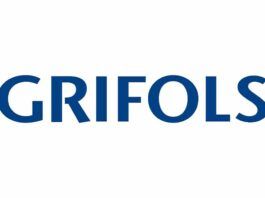NASCON pays dividend with overdraft as high costs deflate margin
NASCON Allied Industries Plc, a refiner of industrial salt and distributor of household food processing has an installed production capacity of 567,000 metric tonnes per annum.
The company has been contending with distribution issues but until lately when it moved operation.
NASCON location disadvantage impacted on its operational performance in the first half. However, the management said it has moved significant part of its production capacity out Apapa.
On that note, some analysts are expecting to see additional cost savings further into the year. And that, as expected would buoy profitability if demand side is properly taken care of.
In the first half of financial year 2019 performance scorecard, NASCON recorded a marginal increase of 1% year-on year in revenue, from N12.82 billion in the first half of 2018 (H1’18) to N12.97 billion.
Last week, the company’s market capitalisation closed at N35.502 billion having recorded 25.56% year to date loss.
However, it opened the year at N18 per share, traded at N13.40 on Friday having reached year high at N21.7, and low point was N12.50.
The directors satisfied investors’ desires, paid N2.65 billion dividend.
The payment, including some amount expended on capital expenditure, were possible with N1.5 billion overdraft obtained.
This comes at heavy cost, as finance cost ballooned with resultant impact on profit margin, albeit immediately at the time when demand for its products remain flat.
The big challenge is how NASCON will manage its cost. The company’s cost is fast rising, just the same time when business isn’t looking so good.
On the variable side, raw materials price increased, just as logistic and distribution isn’t coming down from all-time high.
This, analysts think is partly due to worsening road network – Apapa gridlock cost resident companies around the areas as much as N1 trillion per annum. NASCON is not left aside.
Its cost of sales expanded by 9% from N8.66 billion in H1’18 to N9.45 billion in H1’19. This was the case in the first quarter, though the management raised sales volume by selling to more corporate customers’ than retail.
But marginal growth in the top line could not support increased cost, thus lowered profitability in the period.
Operating profit declined by as much as 26% year-on-year, from N2.88 billion in H1’18 to N2.12 billion in H1’19, on the back of increased marketing expenses and administrative expenses, which increased by 16% and 6% respectively.
Then, steep finance cost of N64.5 million stressed out earnings and pressed margin.
The numbers show that profit before tax declined by 34% year-on-year, from N3.23 billion in H1’18 to N2.13 billion in H1’19.
This forced down earnings per ordinary shares ranked for dividend.
Precisely, Earnings per share (EPS) for H1’19 stood at N0.55, as against N0.83 reported in the corresponding period of the previous year.
Thus, the slight increase of 1% in revenue from N12.82 billion in H1’18 to N12.97 billion in H1’19 was contributed mainly by a rise of 1% in sales of goods.
WSTC Financial Service observed that sales of edible, refined, bulk, industrial salt as well as seasoning and vegetable oil surged from N10.81 billion in H1 2018 to N10.95 billion in H1 2019.
This occurred as revenue from rendering of services such as freight income for the deliveries of salt and seasoning remained flat at about N2.02 billion.
Further analysis showed that revenue generated in the Northern region which contributes an average of 70% to the Group’s total revenue grew by 5%, to N9.42 billion in H1’19 from N8.96 billion in H1’18.
Meanwhile, in the first quarter (Q1) of 2019, revenue from the Northern region declined by 15%.
Analysts at WSTC Financial Service limited attributed the decline to security challenges and election violence during the period.
Notably, some of the problems faced in the Northern region include persistent attacks by the Boko Haram insurgents, increased communal violence between herdsmen and farmers, banditry, and killings; all of which it believed had a significant impact on sales.
However, in the second quarter (Q2) of 2019, following the conduct of the 2019 General elections and a relatively saner environment, revenue from the Northern region picked and grew by 28% from N4.2 billion in Q2’18 to N5.4 billion in Q2’19.
WSTC reckoned that a15% revenue decline in the North in Q1’19, and a 28% revenue growth in Q2’19; resulted in a 5% revenue growth in the Northern region in H1’19 to N9.42 billion compare to N8.96 billion in H1’18.
Meanwhile, it was observed the declining trend of sales in the Western region continued, as revenue from the West declined by 2% year-on-year, from N2.78 billion in H1’18 to N2.72 billion in H1’19.
“We noted that the H1’18 revenue from West also a declined by 42%, from N4.81 billion in H1.17. We opine that the consecutive year-on-year decrease in revenue in the Western region was due to increased competition in the market, as consumers looked for cheaper brands due to low purchasing power.
“The 23% decline in revenue from the Eastern markets, and 2% decline in the Western markets was partially offset by a 5% revenue growth in the Northern markets, thereby resulting in total revenue growth of 1%”, WSTC stated.
Cost of sales grew by 9% year-on-year, from N8.66 billion in H1’18 to N9.45 billion in H1’19.
Increase recorded in the cost of raw materials from N5.26 billion in H1’18 to N5.69 billion in H1’19 drove the cost of sales up by 8% year-on-year.
The costs incurred on external haulage rose by 21% year-on-year, from N1.45 billion in the H1’19 to N1.76 billion in H1’19.
Analysts attributed the surged in increase in haulage cost to have emanated from the persistent traffic gridlock at Apapa.
WSTC Financial Service limited believes that due to the increased competition in the markets, the Group was probably unable to past the cost burden to consumers in the form of higher prices.
Thus, operating profit plummeted by as much as 26% from N2.88 billion in H1’18 to N2.12 billion in H1’19, on the back of higher operating expenses, which grew by 9% year-on-year.
Distribution expenses increased by 16% year-on-year, resulting from a 21% increase in costs incurred on selling expenses/market activation. Also branding expenses also grew by 13% year-on-year.
Analysts at WSTC Financial Service observed that the Group focused more on market activation/selling expenses in the second quarter as depicted by a higher selling expenses growth in Q2’19.
In the first quarter of the year, selling expenses grew by 12% year-on-year, while branding expenses increased by 18% year-on-year.
However, in the second quarter of the year, selling expenses grew by 30% year-on-year, while branding expenses grew by 7% year-on-year.
Analysts said they believe that the management decided to focus more on sales promotional activities to drive revenue rather than branding, possibly due to a less preference for branding by the consumers.
WSTC is of the view that consumers are likely to be more sensitive to prices than the brand, as purchasing power continues to face pressures.
Cash flows from operating activities was a deficit of N309.61 million in H1’19, from a surplus of N2.27 billion in H1’18.
The operating cash flows deficit was majorly due to lower cash received on sales, coupled with high ramping up of stock during the period.
Inventories levels spiked by 39%, as the Group spent N1.71 billion on inventory, relative to N883.95 million in the corresponding period of the previous year.
Analysts think that this might be as a result of expectations of higher input cost going forward, thus stocking up now could reduce exposure to higher input costs.
The group also made some prepayments to the tune of N462.99 million and made a payment of N348.78 million to suppliers.
It spent N784.03 million on capital expenditure during the period, relative to N1.30 billion spent in H1’19 and made a dividend payment of N2.65 billion to shareholders during the period.
WSTC Securities stated that for NASCON to support the financing of business operations, capital expenditure, and dividend payments; the Group obtained a combined overdraft line of N1.50 billion from Zenith Bank and its parent company (Dangote Industries Limited) together with an opening cash balance of N2.59 billion.
As a result of this, a finance cost of N64.53 million was incurred during the period to service the overdraft facility.
Read: https://dmarketforces.com/wstc-securities-downgrade-nestle-cites-fx-restriction-weak-demand/
Consequently, profit before tax declined steeper by 34% year-on-year, from N3.24 billion in H1’18 to N2.13 billion in H1 2019.
Overall, net income stood at N1.45 billion in H1 2019, relative to N2.20 billion in H1’18 as effective tax rate remained flat at 32%.
WSTC Financial Service stated that it expects an increased competitive landscape in the salts market, majorly from cheaper brands and an influx of smuggled products.
Thus, the firm posits that revenue growth will remain pressured in the near to medium term.
In the same line, Meristem Financial Service Limited also estimated that NASCON revenue would hit N27.05 billion in 2019.
“We also expect pressures on input cost to persist in H2’19. We project financial year 2019 revenue growth of N26.39 billion, a profit before tax of N3.95 billion, and a profit after tax of N2.72 billion”, WSTC Securities.
NASCON pays dividend with overdraft as high costs deflate margin



